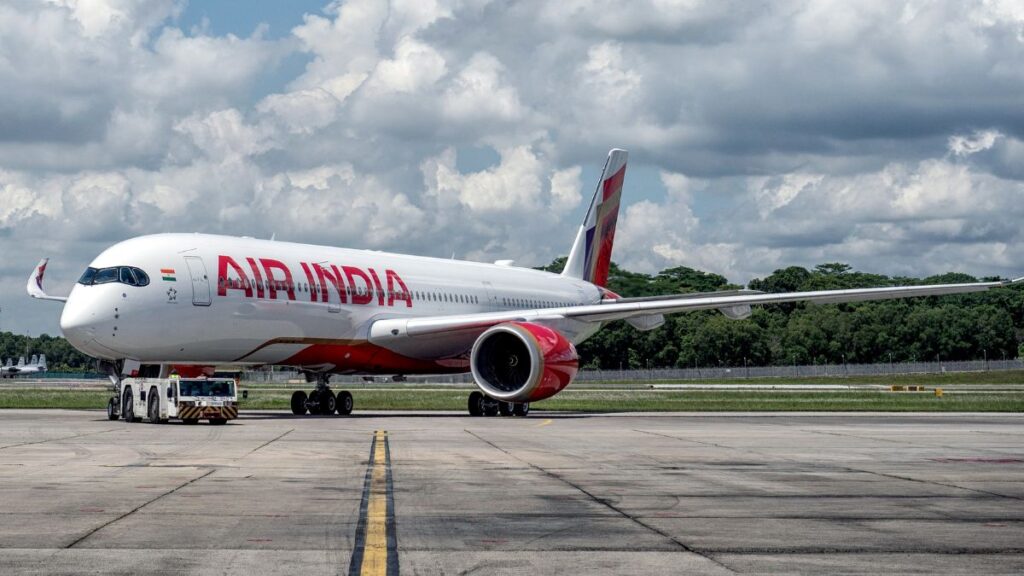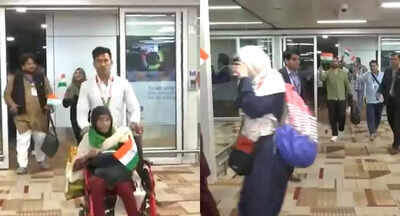An Air India aircraft slated to fly from Hyderabad to Mumbai was halted moments before take‑off at Rajiv Gandhi International Airport when the pilot identified a technical fault during final pre‑departure checks. The swift decision to abort take‑off ensured the safety of all 92 passengers and crew aboard.
The flight, operating as AI‑2534, had already completed boarding when the glitch was detected. Airport officials confirmed that passengers were deplaned and re-accommodated on a later Air India service to Mumbai. The airline attributed the cancellation to a technical snag and immediately arranged alternative travel plans and support for those affected.
This incident follows heightened scrutiny of Air India’s operations since the tragic June 12 crash of Flight AI‑171 near Ahmedabad, which resulted in 242 fatalities. In the aftermath, the Directorate General of Civil Aviation has imposed rigorous pre-flight inspections on the airline’s Boeing Dreamliner and Boeing 777 fleets. Air India has also proactively cancelled multiple flights—domestic and international—to facilitate enhanced maintenance checks. On Friday alone, eight flights were cancelled, including AI‑2872, another Hyderabad‑Mumbai route, as part of the ongoing safety measures.
Experts note that aborted take‑offs, or RTOs, are standard safety procedures in commercial aviation when a potential malfunction is detected before reaching critical speed thresholds. Such protocols are built into pilot training to prevent take‑off in unsafe conditions. Aviation safety analyst Dr Meera Nair observes that “rejecting take‑off at low speed is a critical decision. It’s a clear indicator of procedural discipline and situational awareness.”
Air India’s operations have encountered further repercussions this month, with a Boeing 777‑200LR halted in Kolkata following a left‑engine issue during a technical stop en route from San Francisco to Mumbai. Similar episodes—a mid‑air return from Hong Kong on AI 315 and multiple flight cancellations—have brought the airline under intense regulatory and public scrutiny.
The airline is responding with comprehensive safety measures. Between June 21 and July 15, Air India plans to reduce international widebody operations by 15%, temporarily lowering pressure on its inspection and maintenance systems. In addition, Air India Express is taking over certain regional routes like Imphal, easing the fleet burden on the parent airline.
Passengers affected by yesterday’s Hyderabad incident praised the airline’s handling of the disruption. A deplaned traveller commented via airport source: “They were calm, efficient, and arranged the next flight quickly.” Air India has offered full refunds, complimentary rescheduling, accommodation, and refreshments to those concerned.
Despite immediate operational challenges, aviation analysts see this as a positive sign of systemic safety resilience. “Frequent RTOs and precautionary stoppages, rather than causing alarm, suggest that the airline is erring on the side of caution,” says aviation consultant Rajiv Menon. “Given the scale of recent incidents, this aggressiveness in safety checks is warranted.”
The Directorate General of Civil Aviation has authorised extensive technical inspections of Air India’s Boeing 787 fleet. As of June 18, 24 out of 33 aircraft had been cleared, while two were stalled in Delhi undergoing repairs.
Boeing has offered full cooperation with regulatory bodies and investigative agencies. The global air‑crash probe into the Ahmedabad disaster continues, delving into potential causes ranging from engine thrust failure to flap misconfiguration, with flight data and cockpit voice recorders now under analysis.
Passengers and industry observers are watching closely as Air India navigates strengthening safety regimes while managing logistical disruptions. The prompt identification of a technical fault and the decision to halt take‑off at Hyderabad underlines the efficacy of real‑time monitoring and pilot judgement under high‑risk scenarios.
The Hyderabad incident adds to a series of high-stakes operational decisions that underscore a broader transformation in Air India’s approach to risk. While passengers face delays, the airline’s proactive stance may serve to rebuild trust in its service reliability and safety culture amid a critical juncture for India’s flag carrier.




 Israel Hits Isfahan and Targets Iranian Drone Chief
Israel Hits Isfahan and Targets Iranian Drone Chief 